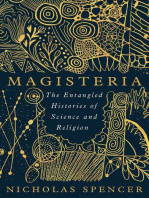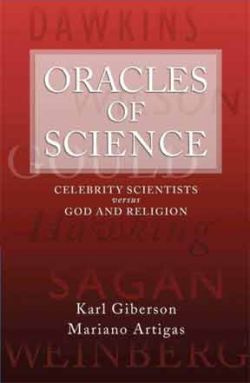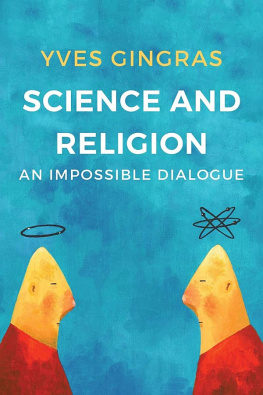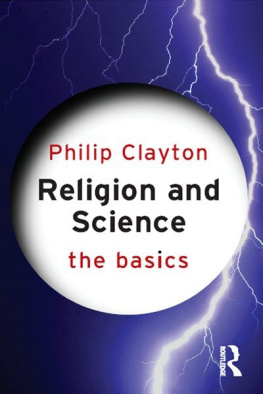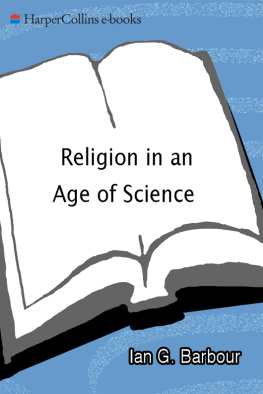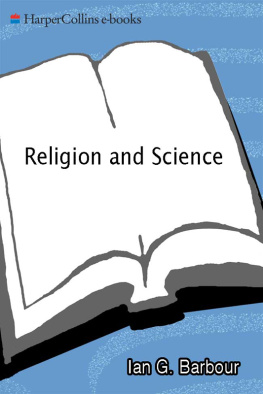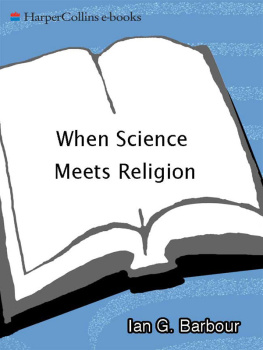THE TERRY LECTURES
Private Doubt, Public Dilemma
Other Volumes in the Terry Lectures Series
Available from Yale University Press
The Courage to Be Paul Tillich
Psychoanalysis and Religion Erich Fromm
Becoming Gordon W. Allport
A Common Faith John Dewey
Education at the Crossroads Jacques Maritain
Psychology and Religion Carl G. Jung
Freud and Philosophy Paul Ricoeur
Freud and the Problem of God Hans Kng
Master Control Genes in Development and Evolution Walter J. Gehring
Belief in God in an Age of Science John Polkinghorne
Israelis and the Jewish Tradition David Hartman
The Empirical Stance Bas C. van Fraassen
One World: The Ethics of Globalization Peter Singer
Exorcism and Enlightenment H. C. Erik Midelfort
Reason, Faith, and Revolution: Reflections on the God Debate Terry Eagleton
Thinking in Circles: An Essay on Ring Composition Mary Douglas
The Religion and Science Debate: Why Does It Continue? Edited by Harold W. Attridge
Natural Reflections: Human Cognition at the Nexus of Science and Religion Barbara Herrnstein Smith
Absence of Mind: The Dispelling of Inwardness from the Modern Myth of the Self Marilynne Robinson
Islam, Science, and the Challenge of History Ahmad Dallal
The New Universe and the Human Future: How a Shared Cosmology Could Transform the World Nancy Ellen Abrams and Joel R. Primack
The Scientific Buddha: His Short and Happy Life Donald S. Lopez, Jr.
Life After Faith: The Case for Secular Humanism Philip Kitcher
Private Doubt, Public Dilemma
Religion and Science since Jefferson and Darwin
KEITH THOMSON

Published with assistance from the foundation established in memory of William McKean Brown.
Copyright 2015 by Keith Thomson.
All rights reserved.
This book may not be reproduced, in whole or in part, including illustrations, in any form (beyond that copying permitted by Sections 107 and 108 of the U.S. Copyright Law and except by reviewers for the public press), without written permission from the publishers.
Yale University Press books may be purchased in quantity for educational, business, or promotional use. For information, please e-mail (U.K. office).
Set in Janson Roman type by Tseng Information Systems.
Printed in the United States of America.
Library of Congress Cataloging-in-Publication Data
Thomson, Keith Stewart.
Private doubt, public dilemma : religion and science since Jefferson and Darwin / Keith Thomson.
pages cm. (The Terry lectures series)
Includes bibliographical references and index.
ISBN 978-0-300-20367-7 (cloth : alk. paper) 1. Religion and science. 2. Darwin, Charles, 18091882. 3. Jefferson, Thomas, 17431826. I. Title.
BL240.3.T485 2015
201.65dc23
2014040042
A catalogue record for this book is available from the British Library.
This paper meets the requirements of ANSI/NISO Z39.481992 (Permanence of Paper).
10 9 8 7 6 5 4 3 2 1
The Dwight Harrington Terry Foundation Lectures on Religion in the Light of Science and Philosophy
The deed of gift declares that the object of this foundation is not the promotion of scientific investigation and discovery, but rather the assimilation and interpretation of that which has been or shall be hereafter discovered, and its application to human welfare, especially by the building of the truths of science and philosophy into the structure of a broadened and purified religion. The founder believes that such a religion will greatly stimulate intelligent effort for the improvement of human conditions and the advancement of the race in strength and excellence of character. To this end it is desired that a series of lectures be given by men eminent in their respective departments, on ethics, the history of civilization and religion, biblical research, all sciences and branches of knowledge which have an important bearing on the subject, all the great laws of nature, especially of evolution also such interpretations of literature and sociology as are in accord with the spirit of this foundation, to the end that the Christian spirit may be nurtured in the fullest light of the worlds knowledge and that mankind may be helped to attain its highest possible welfare and happiness upon this earth. The present work constitutes the latest volume published on this foundation.
Brethren, scholars, men of science, yours is a priestly calling.
ANDREW P. PEABODY, The Connection between Science and Religion: An Oration Delivered before the Phi Beta Kappa Society of Harvard University, August 28, 1845
Contents
Preface
Charles Darwin was never just a scientist; he was fascinated by metaphysics and tormented about religion. During the tense period in 1838 just before the final pieces of his theory of evolution by natural selection fell into place, just as he was about to propose to Emma Wedgwood, and just before his health failed miserably under the pressure of it all, he had been reading Wordsworth. Judging by entries that he made in his M Notebook, he had been thinking about the branch of theology called natural theology, according to which the beauty, order, and purposiveness of life on earth can be seen as proof of Gods existence. Intrigued by his own aesthetic responses to nature, he made a set of telegraphic notes on the problem of assessing beauty, particularly the beauty of scenery, including this reference: [See] Wordsworth about science being sufficiently habitual to become poetical.
In both cases, Darwin must have been referring to the Preface to the Lyrical Ballads (1800), where Wordsworth wrote:
The Man of science seeks truth as a remote and unknown benefactor; he cherishes and loves it in his solitudes: the Poet, singing a song in which all human beings join with him, rejoices in the presence of truth as our visible friend and hourly companion. It is the impassioned expression which is the countenance of all Science. If the labours of men of Science should ever create any material revolution, direct or indirect, in our condition, and in the impressions which we habitually receive, the Poet will sleep then no more than at present, but he will be ready to follow the steps of the man of Science, not only in those general indirect effects, but he will be at his side, carrying sensation into the midst of the objects of the Science itself. If the time should ever come when what is now called Science, thus familiarized to men, shall be ready to put on, as it were, a form of flesh and blood, the Poet will lend his divine spirit to aid the transfiguration, and will welcome the Being thus produced, as a dear and genuine inmate of the household of man, and science will become part of an atmosphere of sensation in which we all move our wings and create a material revolution, direct or indirect, in our condition.
In singling out this passage from the Preface Darwin asked a central question, relevant both then and now. What role does science play in our lives? Two centuries after Wordsworth, it seems that we have come a long way in the familiarization and habituation of science toward making that material revolution in our condition. That science has become poetical might well be challenged, but there can be no doubt that it has completely and irrevocably changed the whole atmosphere in which we all move our wingsand not always in ways that are comfortable and secure. And this is the situation that Dwight Terry has asked us to ponder in his series of lectures on religion and science, to which this book is a contribution.


